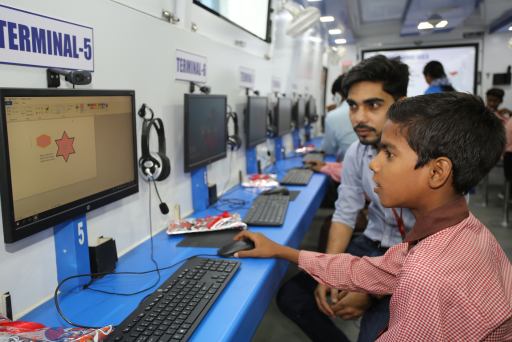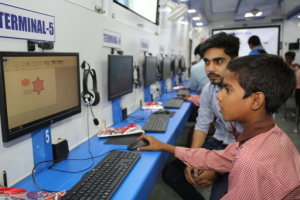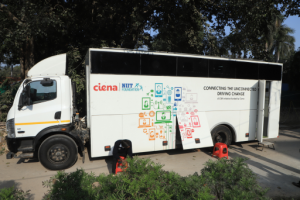In urban centres, underprivileged youth often feel that opportunities are out of their reach. This is because they may have lacked quality foundational education, access to skill development programs, and career guidance. As a result of this, they face barriers to enter the formal workforce.
Participating in initiatives such as placement drives, mock interviews and career counselling provide youngsters with the tools, confidence and holistic support needed to thrive in the professional world.
These initiatives act as bridges, connecting students with opportunities that are not easily accessible without the right support.
Bridging the opportunity gap
Organizations like Saath, a community-focused NGO based out of Ahmedabad, are at the forefront of these initiatives. Their comprehensive training programs promote technical skill development with psychological preparedness. This has proven to be a game changer for students, as the focus is not only on their employability, but also their ability to adapt and persevere through the job-searching process of applications, tests and interviews.
What sets programs led by Saath apart is their focus on holistic development for youth. Beyond technical training, they also lead initiatives including:
Mock Interviews: Simulated interview sessions help participants become familiar with professional expectations, reduce anxiety, and improve their communication skills.
Guest Lectures: Industry experts share insights, inspiring youth and helping them understand workplace dynamics and trends.
Exposure Visits: Visits to workplaces and factories give participants a realistic understanding of professional environments.
This combination ensures that students build all round capability.
Considering that students from underprivileged backgrounds are often daunted by fear of rejection or the lack of familiarity with formal job settings, focus on psychological preparedness is a key initiative that can help them be prepared during the placement process.
For instance, many students often experience during interviews that they know the answers to the questions they are asked, however, they are often caught tongue-tied. This is because of various factors including psychological pressure, and lack of practice. This is why it is important for students to undertake mock interviews in simulated settings. They can access these programs through placement-oriented initiatives. The NIIT Foundation, through its skilling initiatives, help students practice mock interviews by mimicking real-world scenarios, where a participant can practice, fail and improve in a safe environment.
Students who are well prepared for the placement process have gone on to secure employment opportunities. This has helped them to improve their quality of life, support their families and build a career.
The Role of Placement Drives
When a student first enters a college or a program, they often wonder whether or not they will succeed during the placement drive. It is important for students to remember that a placement drive is not a point solution to get a job, but it is a culmination of all the efforts they have undertaken through the course of their college or training programs.
A student’s preparation will determine their success during the placement drives. Employers are looking for skilled youth who are motivated, and go above and beyond the responsibilities of their role. A trained job seeker has a much better chance to secure these roles because the confidence they have gained through the training process will reflect during the interviews with potential employers.
Employers are always on the lookout for skilled-talent. The role of placement drives is most important by helping employers connect with skilled-youth. This bridge is an important part of the placement drive because, neither employer nor the job seeker would have been able to meet without a platform.
Conclusion
Accessing the right programs that focus on technical acumen and soft skills will benefit students greatly. Organizations working with underserved youth have time and again demonstrated that with the right support and opportunities, every young person has the potential to succeed, no matter their background.
















